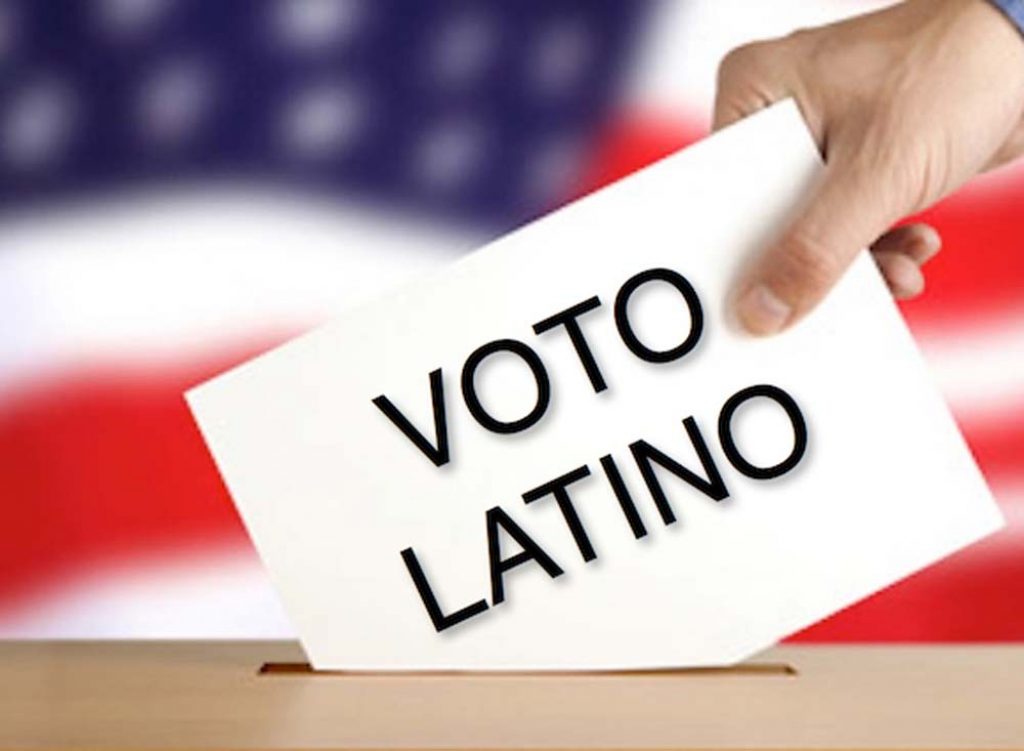President Joe Biden faces a loss of support among Latinos, the second-largest group of voters in the United States, just as an election year begins that will define who will control Congress and the president’s ability to act for the rest of his term.
According to a recent PBS / Marist poll, Biden’s approval rating is 33% among Hispanics, compared to 40% among whites, while 65% of Latinos and 56% of whites disapprove of his performance.
And in another poll, in this case by “The Wall Street Journal,” Latinos were divided on whether they will vote for a Democratic or Republican candidate for Congress next November, with the same proportion of those consulted (37%) favoring each option.
And looking more in the long term, to the presidential elections of 2024, 44% said that if they were held now they would vote for Biden, while 43% would opt for a hypothetical candidacy led by Republican Donald Trump.
Other polls show a similar disenchantment of the Latino electorate with the Democratic Administration.
Far is, therefore, the 59% of the Latino vote that supported Biden in the 2020 presidential elections, when he defeated then-President Trump (who received 32% of the Hispanic support).
But even then, Trump had managed to improve the results shown four years earlier, when he captured 28% of the Latino vote, by 66% of the then-Democratic candidate Hillary Clinton, according to the Pew think tank.
ELECTORATE HINGE
Hispanics are becoming a hinge electorate over the years (with similar support for Republicans and Democrats and considered key in the elections), considers Ben Monterroso, who led the organization Mi Familia Vota for more than two decades and who advises the Power Latinx organization.
Monterroso explains that “discouragement” currently reigns among Latinos, largely due to the inability of Democrats to fulfill so far their promise to pass immigration reform and respond to the economic challenges brought by the covid-19 pandemic. like high inflation.
A similar sentiment is detected by Miguel Tinker Salas, Professor of History and Latino Studies at Pomona College, who acknowledges the existence of “significant frustration” among Latinos over Biden’s inability to promote his economic, social, immigration, and environmental policies.
Because the economy continues to be what matters most to Latinos, as confirmed by a survey by the group specialized in this community Equis Research; and inflation hits the most sensitive economies, such as Hispanics, hardest.
The academic believes that Latinos see Biden as a “weak” president and “incapable of controlling his party,” which has made it impossible for him to carry out his billionaire social spending plan in the Senate until now.
POSSIBLE VOTE OF PUNISHMENT
Monterroso and Tinker Salas leave the door open that a possible “punishment vote” for Democrats will not necessarily lead Latinos to favor Republicans, but simply to stay home.
And that could be enough to tip the balance in states like Texas, Arizona, Nevada, or Colorado, where Latinos have been cheering Democrats in recent elections.
In Arizona, all eyes are on Democratic Federal Senator Marc Kelly, who in 2020 narrowly ousted Republican Martha McSally in a special election and should endorse the result in November 2022. Otherwise, control of the Upper House, currently divided into 50 seats for each party, would be unbalanced in favor of the conservatives.
In the opinion of both analysts, the Democrats are still “in time” to change the trend and convince Hispanics to return to their majority support, but Monterroso suggested that they run a “consistent campaign”, investing very long-term and not waiting at the last minute to visit the Latino neighborhoods asking for the vote.
But they will not have it easy, because, beyond the possible abstention and their rejection of the Democrats taking their vote for granted, we must not forget the initiatives of several conservative states to discourage minority voting and dilute their weight in the new ones. drawings of congressional districts, as denounced by activists.
Tinker Salas says that in states like Texas, Arizona, or Nevada, Republicans have promoted “very concrete” measures to minimize the Latino vote, to “close doors” of participation that took years of work to open.
“The situation is very worrying for the Democrats,” says the professor, while Monterroso recommends that Latinos be aware of the proposals of both parties before making their decision in November of next year and not get carried away by emotions, as well as leaving to vote so as not to lose the political influence gained, step by step, in each election.
